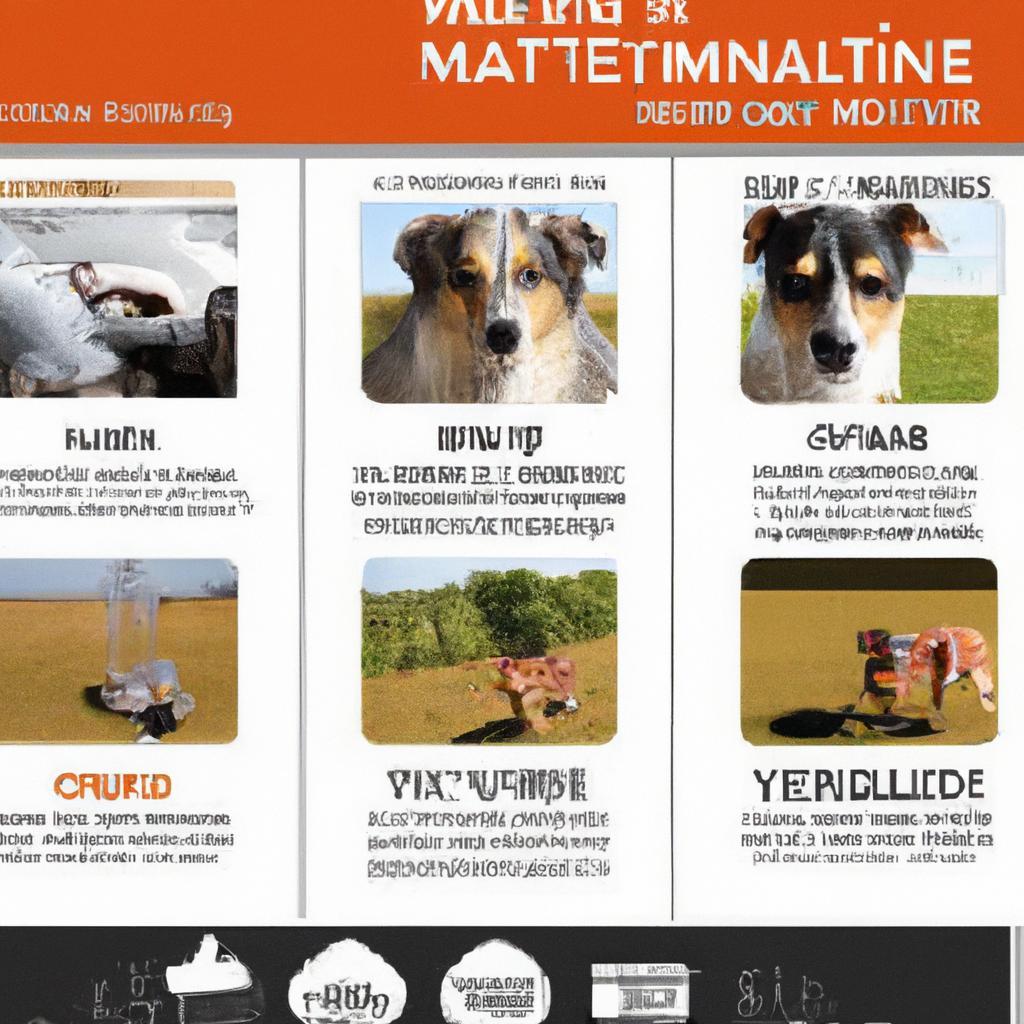Once, a spirited golden retriever named Max struggled with low energy and dull fur. His owner, Sarah, decided to revamp his diet. She researched and discovered that high-quality, protein-rich food with whole ingredients was key. She switched to a balanced diet of lean meats, vegetables, and healthy fats. Within weeks, Max was vibrant, playful, and his coat gleamed. Just like Max, your dog deserves the best. Investing in premium dog food not only enhances their health but also enriches their life. Choose wisely for a happier, healthier companion!
Contents
- Understanding Nutritional Needs for Optimal Canine Health
- Evaluating Commercial Dog Food Options for Quality and Safety
- The Benefits of a Balanced Homemade Diet for Dogs
- Incorporating Natural Supplements for Enhanced Canine Wellness
- Q&A
Understanding Nutritional Needs for Optimal Canine Health
When it comes to ensuring your dog thrives, understanding their nutritional needs is paramount. Dogs, much like humans, require a balanced diet that supports their overall health, energy levels, and longevity. A well-rounded diet should include a variety of essential nutrients, such as proteins, fats, carbohydrates, vitamins, and minerals. Each of these components plays a critical role in maintaining your dog’s health, from promoting a shiny coat to supporting a robust immune system.
**Proteins** are the building blocks of your dog’s body, crucial for muscle development and repair. High-quality protein sources, such as chicken, beef, and fish, should be prioritized in their diet. Additionally, **fats** provide a concentrated source of energy and are vital for healthy skin and coat. Look for sources of omega-3 and omega-6 fatty acids, which can be found in fish oil and flaxseed oil, to enhance your dog’s skin health and reduce inflammation.
Carbohydrates are often misunderstood, but they serve as an important energy source for active dogs. Whole grains like brown rice and oats, as well as vegetables like sweet potatoes and peas, can provide the necessary fiber and nutrients. Furthermore, **vitamins and minerals** are essential for various bodily functions, including bone health and metabolic processes. A balanced diet should include a mix of fruits and vegetables, such as blueberries and carrots, which are rich in antioxidants and can help combat oxidative stress.
Ultimately, the best type of food for your dog will depend on their age, breed, size, and specific health needs. Consulting with a veterinarian can help tailor a diet that meets your dog’s unique requirements. By prioritizing high-quality ingredients and a balanced nutritional profile, you can ensure that your furry friend enjoys a long, healthy, and vibrant life. Remember, investing in your dog’s nutrition is an investment in their happiness and well-being.
Evaluating Commercial Dog Food Options for Quality and Safety
When it comes to selecting the right food for your canine companion, quality and safety should be at the forefront of your decision-making process. Not all commercial dog foods are created equal, and understanding the ingredients and sourcing can make a significant difference in your dog’s health. Look for brands that prioritize **high-quality protein sources**, such as real meat or fish, as the first ingredient. This ensures that your dog receives the essential amino acids necessary for muscle development and overall vitality.
Another critical aspect to consider is the presence of **whole food ingredients**. Foods that include fruits, vegetables, and whole grains provide essential vitamins, minerals, and fiber that contribute to your dog’s well-being. Avoid products that list **by-products, fillers, or artificial additives** in their ingredient lists, as these can be detrimental to your pet’s health. Instead, opt for options that feature recognizable, wholesome ingredients that you would feel comfortable feeding your family.
Safety is equally important when evaluating dog food options. Look for brands that adhere to strict quality control measures and are transparent about their manufacturing processes. Certifications from organizations such as the **Association of American Feed Control Officials (AAFCO)** can provide reassurance that the food meets specific nutritional standards. Additionally, consider brands that conduct regular testing for contaminants and have a clear recall history, as this reflects their commitment to your pet’s safety.
Lastly, don’t underestimate the value of **customer reviews and expert recommendations**. Engaging with fellow pet owners and consulting with veterinarians can provide insights into the effectiveness and palatability of various dog food options. Pay attention to feedback regarding dogs’ health improvements, energy levels, and coat condition after switching to a particular brand. This collective wisdom can guide you toward making an informed choice that prioritizes your dog’s health and happiness.
The Benefits of a Balanced Homemade Diet for Dogs
Feeding your dog a balanced homemade diet can significantly enhance their overall health and well-being. Unlike commercial dog foods, which may contain fillers and artificial ingredients, a homemade diet allows you to control the quality and source of each ingredient. This means you can select fresh, whole foods that are rich in nutrients, ensuring your furry friend receives the vitamins and minerals they need to thrive. By preparing meals at home, you can also cater to any specific dietary needs or allergies your dog may have, promoting a healthier lifestyle.
One of the primary advantages of a homemade diet is the ability to incorporate a variety of ingredients that provide essential nutrients. A well-rounded meal can include:
- High-quality proteins: Lean meats, fish, and eggs.
- Healthy fats: Fish oil, flaxseed oil, or chicken fat.
- Whole grains: Brown rice, quinoa, or oats.
- Fruits and vegetables: Carrots, blueberries, spinach, and sweet potatoes.
This diversity not only keeps mealtime interesting for your dog but also ensures they receive a comprehensive range of nutrients that support their immune system, skin health, and energy levels.
Another compelling reason to consider a homemade diet is the potential for improved digestion. Many commercial dog foods contain artificial preservatives, fillers, and by-products that can be hard on your dog’s digestive system. By preparing meals from scratch, you can choose easily digestible ingredients that are gentle on their stomach. This can lead to fewer gastrointestinal issues, such as bloating, gas, and diarrhea, allowing your dog to absorb nutrients more effectively and maintain a healthy weight.
Moreover, a balanced homemade diet can strengthen the bond between you and your pet. Preparing meals for your dog can be a rewarding experience, as it allows you to engage in their care actively. This hands-on approach not only shows your dog that you care about their health but also provides an opportunity for you to monitor their eating habits and overall condition closely. As you witness the positive changes in their energy levels, coat quality, and overall happiness, you’ll feel a sense of fulfillment knowing you are providing the best for your beloved companion.
Incorporating Natural Supplements for Enhanced Canine Wellness
When considering the best diet for your canine companion, incorporating natural supplements can significantly enhance their overall wellness. These supplements can provide essential nutrients that may be lacking in commercial dog foods, ensuring your pet receives a well-rounded diet. By choosing high-quality, natural options, you can support your dog’s health in a holistic manner.
Some of the most beneficial natural supplements include:
- Omega-3 Fatty Acids: These are vital for maintaining healthy skin and a shiny coat, as well as supporting joint health and reducing inflammation.
- Probiotics: These beneficial bacteria promote a healthy gut flora, aiding digestion and boosting the immune system.
- Glucosamine and Chondroitin: These supplements are particularly useful for older dogs, helping to maintain joint health and mobility.
- Antioxidants: Ingredients like blueberries and spinach can help combat oxidative stress, promoting longevity and vitality.
Incorporating these natural supplements into your dog’s diet can be as simple as mixing them into their regular food or offering them as treats. Always consult with your veterinarian before introducing new supplements to ensure they are appropriate for your dog’s specific health needs. This personalized approach will help you make informed decisions that align with your pet’s unique dietary requirements.
Moreover, the synergy between a balanced diet and natural supplements can lead to noticeable improvements in your dog’s energy levels, coat condition, and overall mood. By prioritizing their nutritional needs and considering the addition of these natural elements, you are investing in a healthier, happier life for your furry friend. Remember, a proactive approach to canine wellness can pave the way for a longer, more fulfilling companionship.
Q&A
-
What are the essential nutrients a dog needs?
Dogs require a balanced diet that includes:
- Proteins: Essential for growth and repair.
- Fats: Provide energy and support cell function.
- Carbohydrates: Offer energy and aid digestion.
- Vitamins and Minerals: Crucial for overall health and immune function.
-
Is commercial dog food better than homemade meals?
While homemade meals can be nutritious, high-quality commercial dog foods are formulated to meet all dietary needs. They undergo rigorous testing and are designed to provide balanced nutrition, making them a convenient and reliable choice for most dog owners.
-
Should I choose dry kibble or wet food?
Both dry kibble and wet food have their benefits. Dry kibble is often more cost-effective and helps maintain dental health, while wet food can be more palatable and hydrating. The best choice depends on your dog’s preferences and specific health needs.
-
How can I determine the right portion size for my dog?
Portion sizes depend on your dog’s age, weight, activity level, and health status. Always refer to the feeding guidelines on the dog food packaging and consult your veterinarian for personalized recommendations to ensure your dog maintains a healthy weight.
choosing the best food for your dog is crucial for their health and happiness. Prioritize high-quality, balanced nutrition tailored to their specific needs. Invest in their well-being today for a vibrant, energetic tomorrow. Your furry friend deserves it!

大家好,我是彼得潘,專業的手法身體治療師。我喜歡探索和研究各種主題,並透過與人工智慧的合作分享專業、實用、有趣的文章。我們定期進行人工審核,以確保內容的準確性。如果您發現文章中有任何不準確的地方,請隨時與我們聯繫,我們會及時糾正。您可以透過 [email protected] 與我們聯繫。



